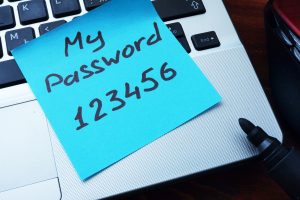When we think of cyber security many of us think it only relates to big organisations. But our computers, modern TVs, smart phones, tablets, and even some of our household utilities all connect to the internet enabling potential access to our personal data.
Knowing how to protect yourself against a cyber-attack can seem overwhelming. Senior Lecturer in Computing and Communications, Mike Richards, has got together with a panel of fellow computer experts from The Open University to give these top tips on how to protect your personal data whilst connected:
1. Update software regularly
You may groan when your computer tells you it is installing updates and that you’ll need to restart; or that your anti-virus software is due to expire. Don’t be tempted to gloss over these actions. Making sure your computer has the latest software patch installed, operating system updates, and keeping the anti-virus software up-to-date is really vital. You don’t have to be a tech expert to do this as there are settings on your computer that will be able to automatically.
2. To share or not to share
We willingly provide details about ourselves on social media. Facebook even prompts our friends to send messages on our birthday. All this can reveal information that could be used to answer security questions and give access to your account. Think carefully about what you share, even the smallest details, and how this could be used as a piece in your data jigsaw. There are some cyber security experts who even go as far as to give false personal information on social media profiles.

Don’t leave a sticky note with your password on next to your computer
3. Be creative with your passwords
We tend to use the same passwords for multiple accounts or simply change one number at the end. Try and use a mix of characters, and never use the same password for multiple sites. Don’t share your passwords and don’t write them down (especially not not on a sticky note a next to your computer). You should aim to update your passwords periodically, at least once every 6 months.
4. Be aware of access to your devices
A smart home can make life’s little chores easier, but it could also be a doorway for hackers. This encompassing connectivity is known as the Internet of Things (IoE). IoE devices include smart home thermostats, home surveillance cameras, smart refrigerators, and lights. These need to be secured just like your laptops, smart phones, and tablets.
Change the default password that comes pre-configured on the device to a password of your own choosing. This makes it much harder for cyber criminals to compromise household devices.
5. Educate yourself
It is worth taking the time to education yourself about cyber security. There are a host of free courses available online and the social learning platform, FutureLearn, has a free course to help you better understand. ‘An Introduction to Cyber Security‘ will provide essential knowledge and skills to help protect you, your data, and your devices.
6. Don’t click the link
Avoid emails and texts with links no matter how official they look. And avoid visiting unknown websites or downloading software from untrusted sources. These sites often host malware (malicious software) that will automatically, and often unoticeably, compromise your computers security.
7. Regularly back up your data
If your device is hacked, the only guaranteed way to repair your computer or phone is to erase and re-install the system. The majority of files will be lost so if you want to keep those precious family photos or videos, ensure you back up all of your data.
The full talk on the recent malware attack that disabled networks across many organisations is available on our free online learning platform, OpenLearn. This is based on teaching from TM112 Introduction to computing and information technology.



